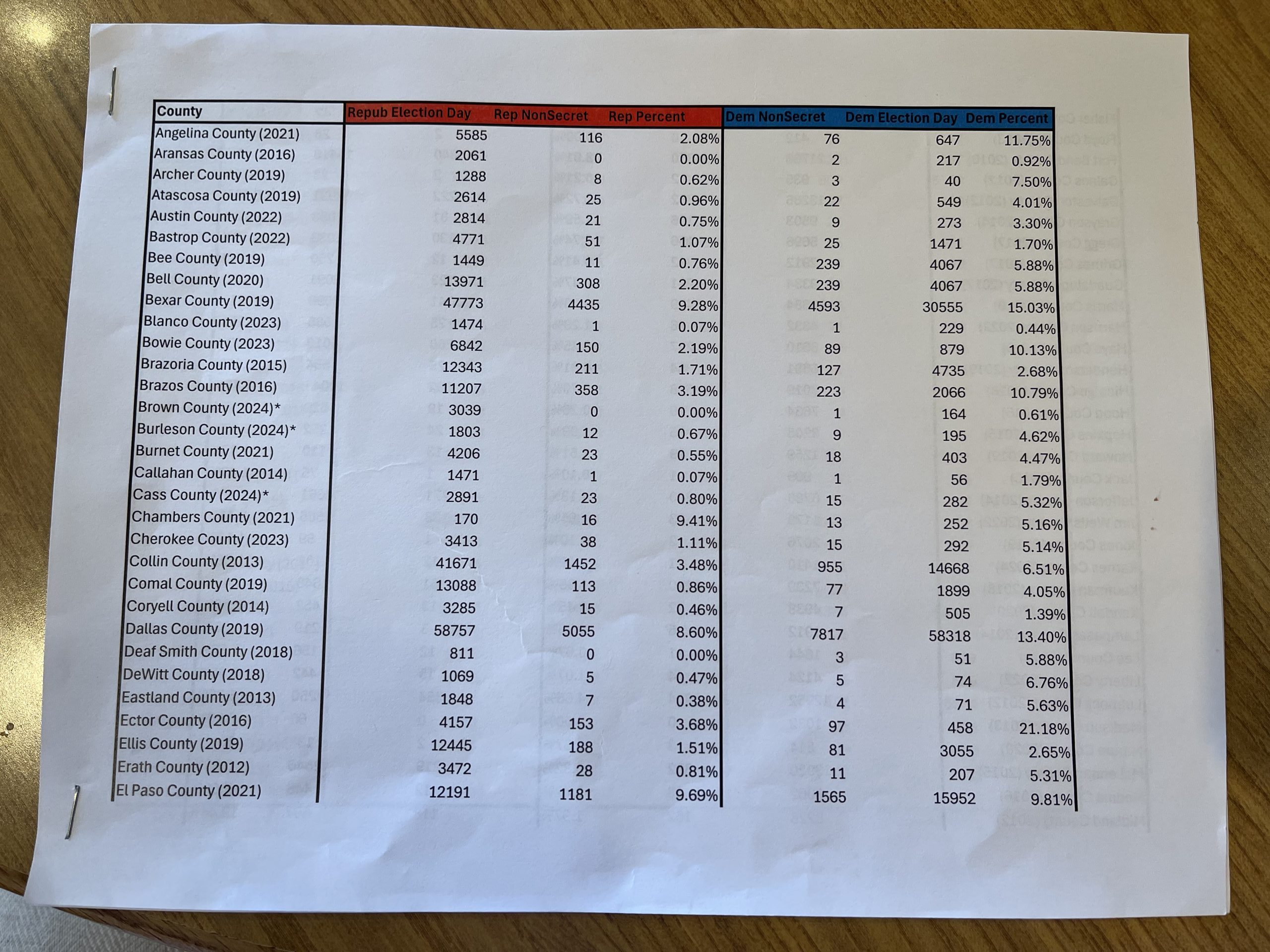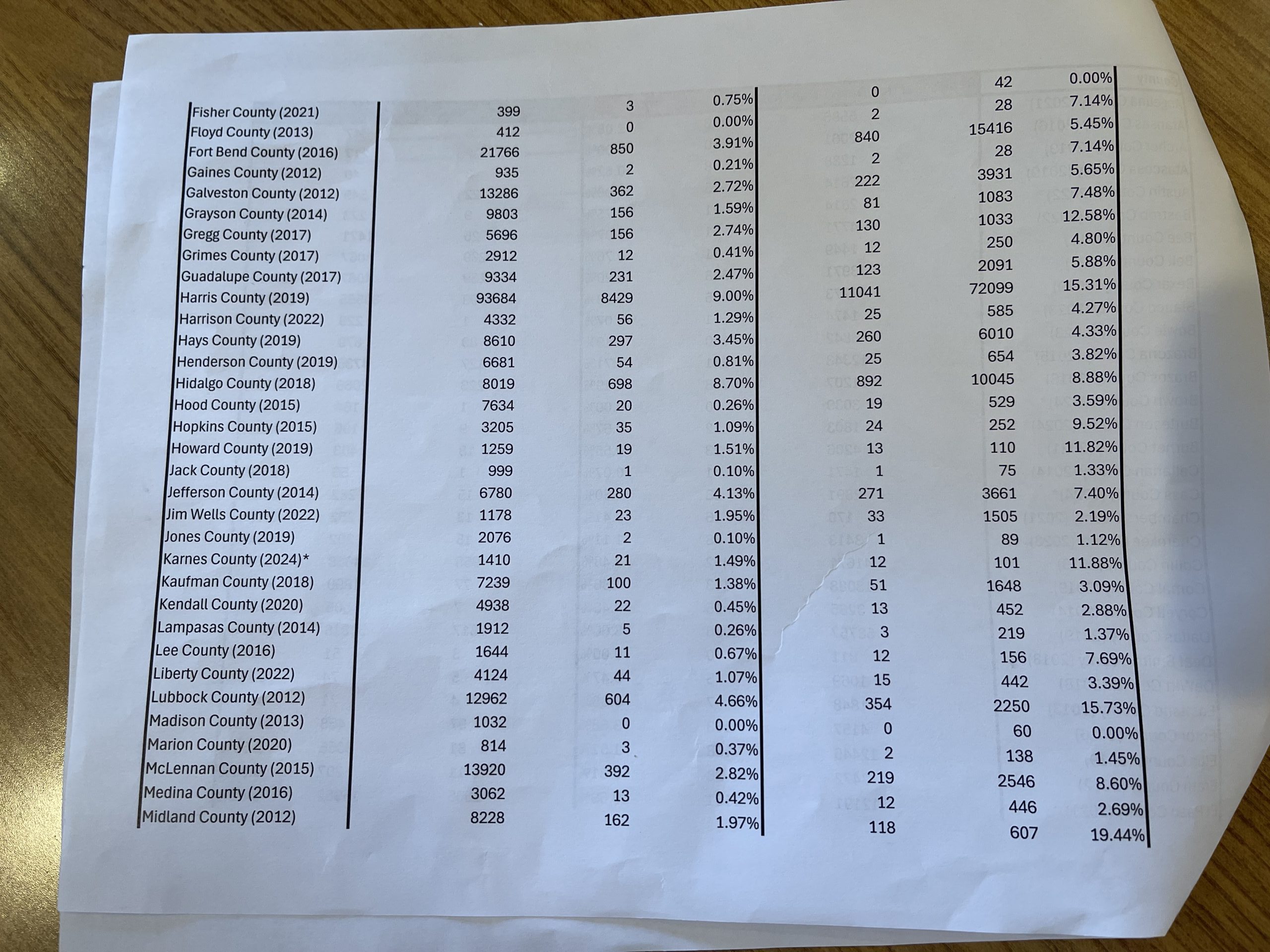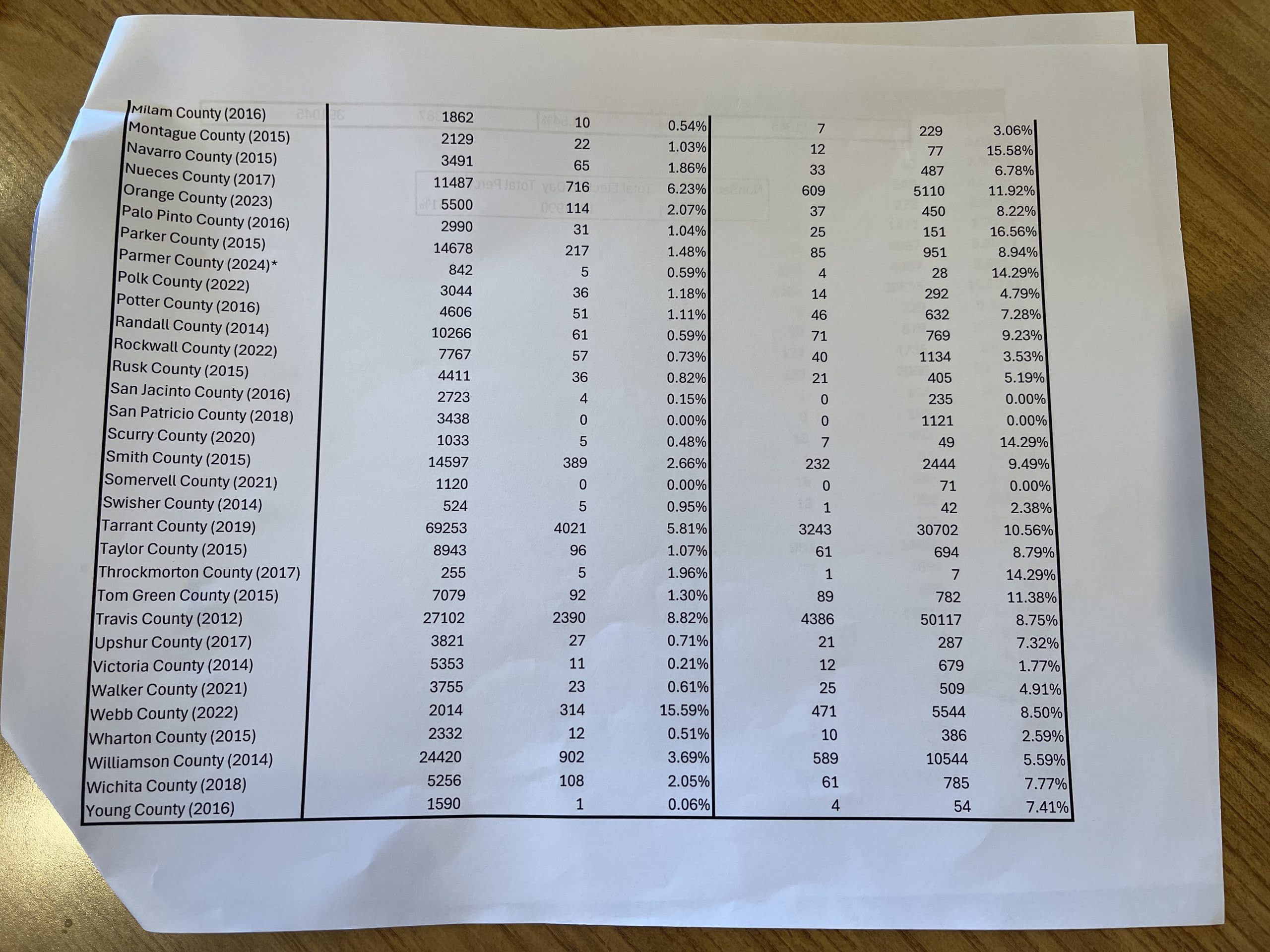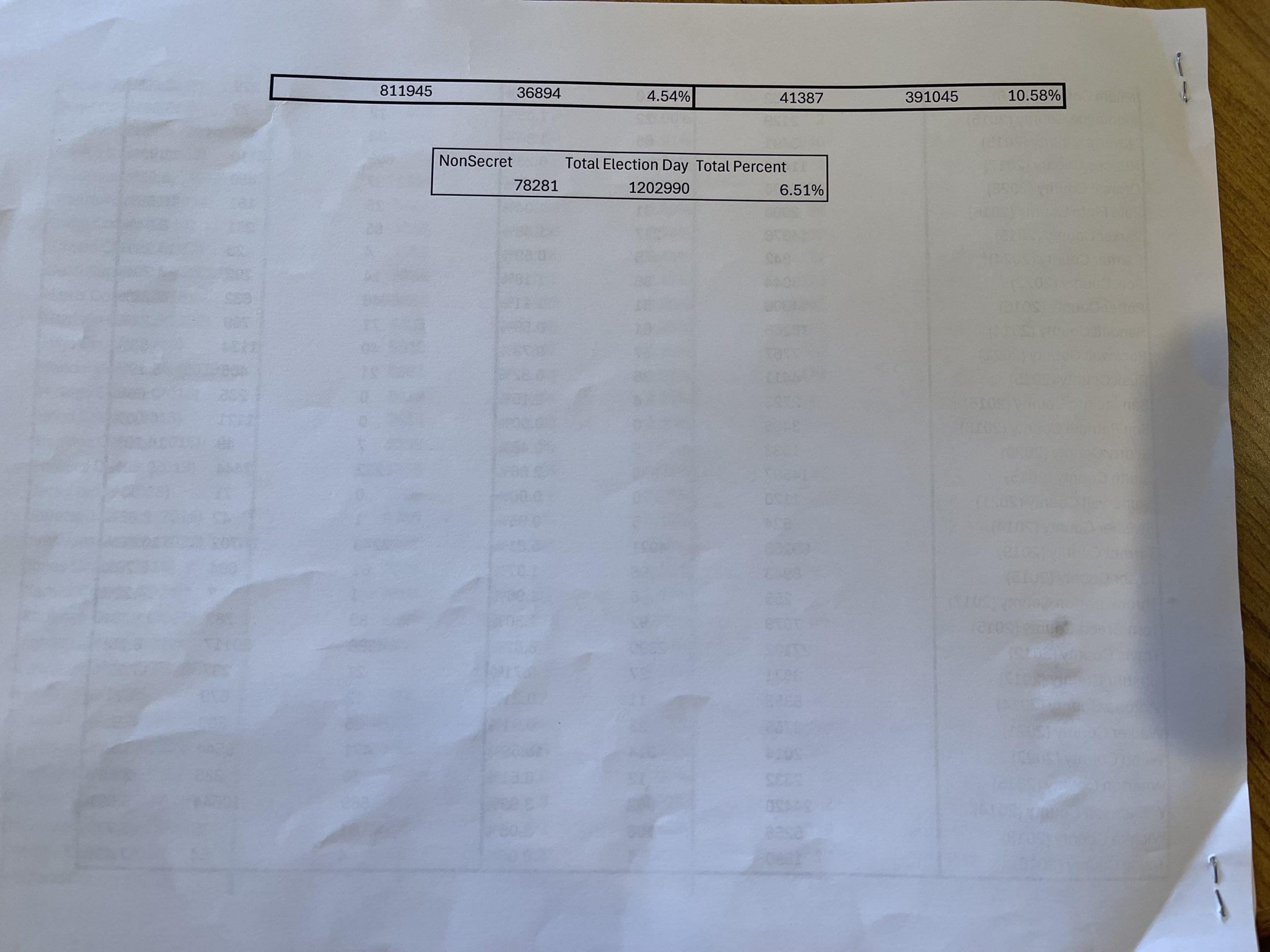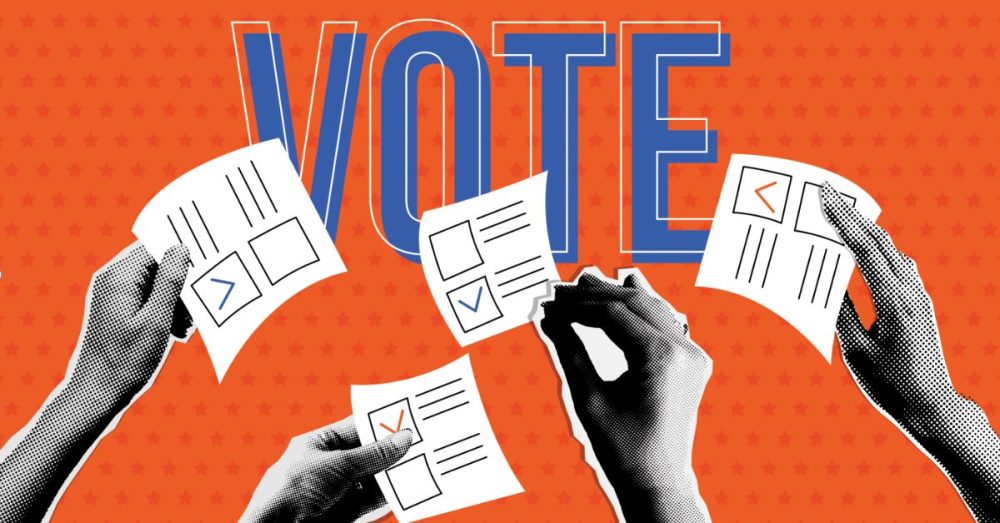Former Texas House of Representatives candidate Barry Wernick has shared a table with The Dallas Express that appears to show just how many Texans’ votes are at risk of being revealed to the public.
According to tables Wernick produced from his research, on average, 7% of the electorate across the roughly 100 counties that have county-wide voting are vulnerable to having their ballots identified. The exposure was far higher in Texas’ most populous counties and for certain parties.
Dallas County:
- Republican Election Day Votes: 58,757
- NonSecret: 5,055 (8.60%)
- Democrat Election Day Votes: 58,318
- NonSecret: 7817 (13.40%)
Tarrant County:
- Republican Election Day Votes: 69,253
- NonSecret: 4,021 (5.81%)
- Democrat Election Day Votes: 30,702
- NonSecret: 3,243 (10.56%)
Bexar County:
- Republican Election Day Votes: 47,773
- NonSecret: 4,435 (9.28%)
- Democrat Election Day Votes: 30,555
- NonSecret: 4,593 (15.03%)
Harris County:
- Republican Election Day Votes: 93,684
- NonSecret: 8,492 (9.00%)
- Democrat Election Day Votes: 72,099
- NonSecret: 11,041 (15.03%)
Travis County:
- Republican Election Day Votes: 27,102
- NonSecret: 2,390 (8.82%)
- Democrat Election Day Votes: 50,117
- NonSecret: 4,386 (8.75%)
All other counties can be seen in the tables embedded below. The tables are for the 2024 spring primary, and the year in parentheses indicate the year each county entered into the countywide voting program.
The ballots of voters who vote outside their precincts, such as election judges, can be identified through a series of open records requests because of a well-publicized loophole in Texas’ election law. In counties like Dallas, Tarrant, Bexar, Harris, and Travis, where there is both county-wide voting and a large population, a degree of exposed ballots has seemingly become inevitable.
Relatedly, in cases like a massive power outage, such as was sustained in Dallas this past spring, voters can be forced to vote out of precinct when their polling centers become disabled.
Some people are unaware of the difference between in-precinct and out-of-precinct or choose to vote in another precinct where countywide voting is available. This infamously led to the leak of former Texas Republican Party Chair Matt Rinaldi’s primary ballot and may have also exposed that of Senate candidate Rep. Colin Allred (D-TX) or his wife, DX previously reported.
Federal laws, such as the Help America Vote Act, guarantee a secret ballot, and others, such as the Voting Rights Act of 1965 and 18 U.S.C. § 597, are intended to protect voters from various forms of coercion.
State laws make similar guarantees. Texas Election Code Section 62.0115 unequivocally guarantees that citizens should have the right to “vote in secret and free from intimidation.”
Nevertheless, the loopholes have created a conflict between Texas’ election code, federal laws, and state laws meant to ensure transparency.
Wernick, an attorney, became interested in election integrity issues after a series of irregularities in his primary race against Rep. Morgan Meyer (R-University Park), which was decided by a margin of around 500 votes. During a recount, he claimed he noticed issues ranging from seals missing on thousands of ballots to absent election judge signatures.
In a previous interview with The Dallas Express, he took issue with the ballot identification solution that the Secretary of State’s office recommended. Wernick condemned the proposed elimination of reporting precinct results and instead recommended that the state “return to what Shannon is fighting for: in-precinct voting,” referring to Shannon Barnett, an election reform activist. Barnett has been campaigning across the state, building support for a petition to return to “hand-marked, hand-counted paper ballots cast in-precinct,” DX previously reported.
Texas’ election procedures vary across the state and are a mish-mash of differing county protocols, while Barnett believes legislative action will be required at some point, her campaign partly focuses on getting county judges to use their lawful authority to order an end to countywide voting which makes the out of precinct voting so prevalent.
